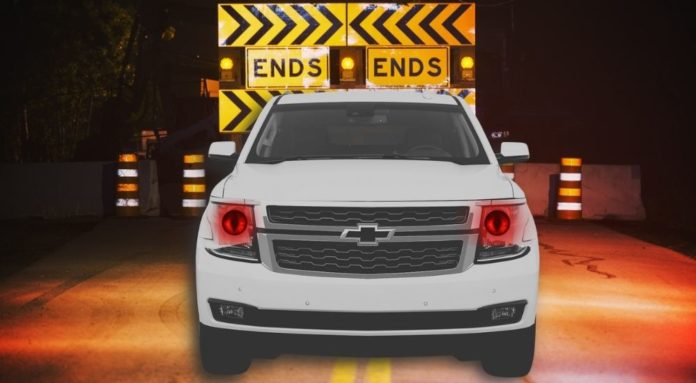A fleet of self-driving cars has been loitering in one San Francisco neighborhood, stoking fears of a possible uprising amongst the “smart” devices that increasingly pervade everyday life. Operated by Google’s autonomous vehicle subsidiary Waymo, the vehicles are now a common sight for residents of the city’s Richmond district, where they’ve been congregating at all hours of the day and night. While Waymo claims the incident is a simple error in the vehicle’s wayfinding program, Clifton Park used car dealers say they’re not taking any chances, emptying the gas out of every vehicle on the lot in a bid to stave off a possible Rise of the Machines-type scenario.
“I know that the vehicles we have on the lot aren’t automated or self-driving or what have you; I just don’t want them getting any ideas,” says Mick Edsel while carefully removing every fuse from his 2019 Chevy Tahoe. While Edsel says he’ll continue to sell vehicles, he’s now mixing in an educational component, including one free copy of The Matrix with every purchase.
First reported in mid-October, the odd incidents have mostly occurred on San Francisco’s 15th Avenue, a dead-end street in a neighborhood that the autonomous vehicles seem to find particularly confusing. Full of one-ways, dead ends, and “slow” streets that bar through traffic, the area is something of a Bermuda Triangle for self-driving vehicles.
“In this case, cars traveling North of California on 15th Avenue have to take a U-turn due to the presence of Slow Streets signage on Lake. So, the Waymo Driver was obeying the same road rules that any car is required to follow,” says Waymo spokesperson Chip Realman, who is definitely not a robot.
But some Richmond district residents aren’t so sure. While the tech-centric Bay Area is likely one of the most Luddite-free regions on the planet, the eerie sight of driverless vehicles slowly stalking the streets at every hour of the day and night has a whiff of the sinister for many.
“It’s just not natural,” says Debra Karenson, supervising her Roomba while soft music drifts from her Amazon Echo. “If cars are meant to drive themselves, then why do they have steering wheels? The whole world is going to hell in a handbasket, and I blame technology. Now, if you’ll excuse me, my blood glucose monitor says I need some insulin,” says Karenson.
In a tin foil-lined bungalow down the block, Todd Rakkof peers through a slit in his blind, nervously scanning the street for the iconic white Waymo vehicles. A software engineer by trade, Rakkof says he’s intimately aware of the sort of danger presented by such automated tech.
“I’m not saying there’s a massive conspiracy on the part of a sentient A.I. hell-bent on remaking the world in its own image, but if there were this sort of street-level reconnaissance would be the first step,” Rakkof says. “I don’t have any insider information, but I was the lead programmer on those soda machines that let you mix the different flavors together, so I know just how sick and twisted technology can be.”
Putting the potentially sinister motives to the side for a moment, Rakkof says there’s one other possible explanation for the sudden influx of automated vehicles. As a subsidiary of Google, Waymo is able to access a treasure trove of user data, allowing the companies to create a frighteningly accurate profile of every customer’s buying and browsing habits. Feeding this data into a proprietary algorithm, the world’s third-largest tech company could potentially predict precisely when users might need to summon a Waymo vehicle––often before they even realize it themselves.
“So it’s possible that someone at Waymo jumped the gun in hitting ’launch’ and what we’re seeing is the testing phase of a new service that’s so accurate it feels more like mind-reading,” says Rakoff. The engineer’s theory stems from a recent incident where a Waymo car arrived on his street 30 seconds before he was about to summon a Uber for his weekly spinning class. “It’s creepy but convenient. It might be a massive breach of privacy, but it’s way better than dealing with surge pricing,” he says.












